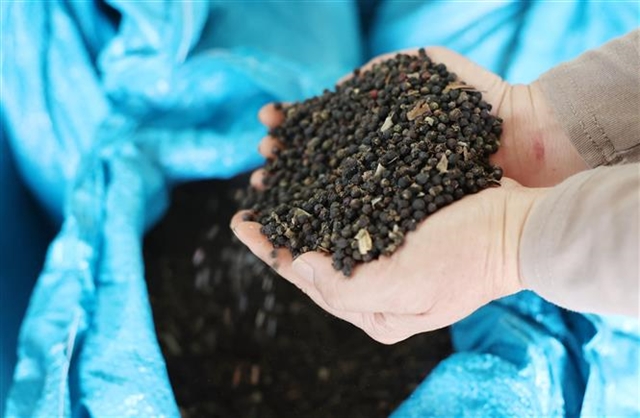 Economy
Economy

.jpg) |
| Workers at a plastic company in HCM City. VNA/VNS Photo |
HÀ NỘI — In light of changes to US tariff policy, efforts to expand trade ties with nearby but high-potential markets like Singapore have become increasingly important.
Such connections offer alternative export routes and help Vietnamese businesses foster commercial partnerships and reduce the negative impact of the tariff shock, according to economists and trade experts.
On Wednesday, the Việt Nam Trade Office in Singapore, the HCM City Investment and Trade Promotion Centre (ITPC) and the HCM City Department of Industry and Trade organised a direct networking event between Vietnamese enterprises and major buyers, importers and distributors in Singapore and other global markets.
According to ITPC, intensifying trade links with international buyers could play a crucial role in mitigating disruptions caused by any US decision. The centre has already issued several support policies and encouraged businesses to explore promising alternative markets such as Halal economies, niche segments and emerging markets through participation in international trade fairs.
The HCM City People’s Committee held a workshop to discuss policy responses to the new US tariffs on the same day. At the event, Dr Trương Minh Huy Vũ, Director of the HCM City Institute for Development Studies, emphasised the need to diversify export markets, strengthen international co-operation and maximise the advantages of existing free trade agreements (FTAs).
He said Việt Nam should leverage FTAs with Middle Eastern countries (such as CEPA and VIFTA) to tap into those markets, while also deepening integration into intra-regional supply chains under ASEAN, RCEP, and CPTPP. Co-operation with Mexico and Canada could also be expanded to take advantage of the US-Mexico-Canada Agreement (USMCA) by developing indirect export channels to the US.
Staying calm
In a separate development, the Việt Nam Pepper and Spice Association (VPSA) urged farmers to stay calm. The association recommended that in the short term, farmers should maintain stable cultivation and follow proper technical care. They were advised not to rush sales or fall for rumours. Instead, those with the means should aim to meet sustainable farming standards—such as RA or Organic certifications—to enhance product value. Farmers were also encouraged to reach out to reputable exporters or cooperatives for support with purchasing and pricing.
“In the short term, prices may drop due to delivery restrictions from the US and several other countries. But in the next month or two, it’s up to the farmers—sell only as needed, not in large volumes, or there won’t be stock left when prices recover,” VPSA advised.
Looking further ahead, the association said global supply and demand would remain the decisive factors. Whether or not the US imposes tariffs, global shortages could still drive prices back up. The association also stressed that the Government, relevant ministries and exporters are actively working to diversify markets and maintain sustainable export channels.
VPSA also advised exporters to be more proactive and increase value-added processing. A gradual shift away from raw exports, combined with market diversification and reduced dependency on a single major buyer, could protect companies from sudden price squeezes. Transparency across the supply chain was also urged to prevent Việt Nam from being used by third parties to evade trade duties, as has happened in the past. — VNS




